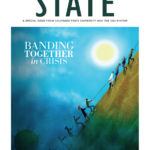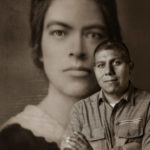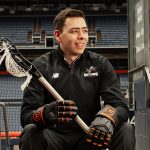[ ESSAY ]
On the eve of my parents’ marriage, my mom’s father offered my dad a blank check to call off the wedding and leave the state. My grandfather could not fathom his white daughter from rural Montana marrying a Black man from Jamaica. Much to the dismay of my white future family members, my dad did not take the bait. Five years later, I was born.
My white grandparents later realized our Blackness did not make us less human, and their perceptions about their Black relatives slowly shifted. But my brother and I were the only Black students in our schools while growing up in northwestern Montana, and I had to learn to navigate a daily onslaught of racial slurs, physical retaliation, and microaggressions from my community. The many recent examples of violence committed on Black bodies have reopened my own wounds and serve as reminders for all of us about injustices Black communities have faced since the time our ancestors were dragged here in chains.
Growing up, my survival and healing technique of choice was silence. I chose silence not to preserve bigots’ inaccurate perspectives; rather, I chose to bite my tongue and grit my teeth for my own safety. I recognized that saying the wrong thing to a racist with a gun could mean a death sentence without a trial, like that imposed on so many nonthreatening Black men.
With the opportunity to attend Colorado State University Pueblo came the maturation of my convictions and an understanding of the evolution, rather than the end, of Jim Crow. In his 1943 poem “Freedom’s Plow,” Langston Hughes asks us to be patient and keep working so the tree of freedom will grow to provide shade for all of those in the United States. With the brutal murder of George Floyd, our nation has begun to realize the tree of freedom has been neglected, and the status quo accepts that strange fruit will still be hung from trees of inequity.
However, with purposeful change, the trauma of many Black people in America may finally be heard. Entrenched racism must be disassembled, so the freedom tree can flourish to grant all Americans freedom and justice.
CSU Pueblo is part of a wider university System proclaiming opportunities for all. Yet these claims must not be shallow or disingenuous and must be followed by action. The university and System must recognize and state the damage of institutionalized, systemic racism in all facets of our society, including education; the results are found in an embarrassingly long list of lynched Black people. We must agree Ahmaud Arbery, Breonna Taylor, and George Floyd died doing things – like exercising, sleeping in their own bed, and sitting in their car – that only those with privilege can enjoy without fear for themselves or their families.
Before the slaughtering of Ahmaud Arbery, running was a joy that filled part of my day. But now, lacing up my shoes to go for a run is anxiety-provoking, and this activity that I once loved leaves me uneasy.
As a first-generation college graduate, poised to begin studying at Harvard Medical School, I am one of the few who overcame some of the obstacles purposefully embedded into the system to suppress people from my background. At every step up in my education, I have acknowledged that my presence is an act of resistance. Now, I recognize my silence has made me complicit in neglect of the freedom tree.
In writing this, I am breaking my silence to join new calls for change – so that those from Black and Brown communities, who are often condemned to disproportionately poor health and economic outcomes, may have a chance to live in the America that was promised in our founding documents.
Derrick Williams graduated summa cum laude from CSU Pueblo in 2018, with a bachelor’s degree and a master’s degree in biology. He earned the university’s top academic honor, in addition to multiple awards as a student-athlete and captain of the university’s cross country and track and field teams. He will begin studies at Harvard Medical School in August.





